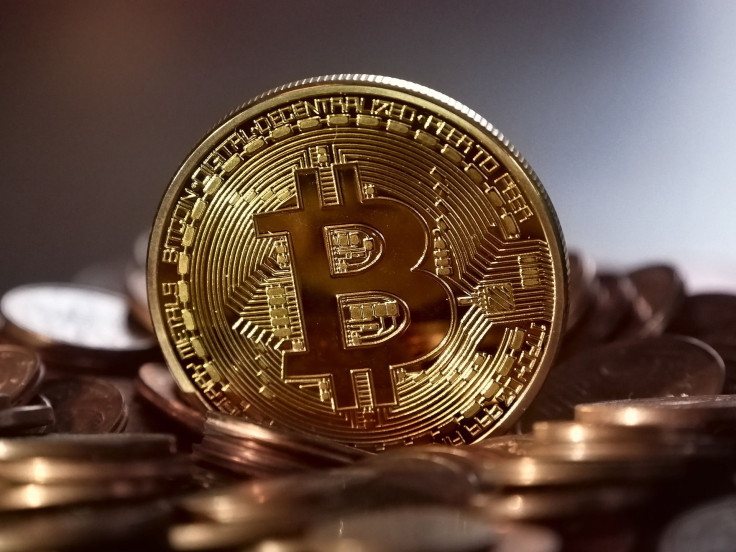Bitcoin Retirement Funds See 'Explosive' Growth

A growing number of bitcoin enthusiasts are joining the ultimate hodling trend: Bitcoin retirement funds. These investors believe bitcoin will increase in value and usage, pluse still be around, several decades from now. According to OnChainFX, bitcoin sold on Friday for around $13,720, a dramatic increase from the $920 price on the same day in 2017. Bitcoin is an open source project run by a grassroots community. So these investors are betting contributors will eventually overcome core issues related to scalability and decentralized governance.
Unlike regular hodling, where people often store their digital currency in a personal hardware wallet as a long-term investment, bitcoin retirement funds must be managed by an external company. “The same way you can’t have your traditional IRA money in your bank account. The IRS would qualify that as a distribution. The cryptocurrency is held by a wallet [provider]. The wallet provides that information to the custodian and the custodian does the reporting to the IRS,” Jay Blaskey, a cryptocurrency specialist at the California-based custodian BitIRA, told International Business Times. “Our growth has been explosive.”
BitIRA works with the the bitcoin storage provider Xapo, which the Wall Street Journal once called the Fort Knox of the bitcoin community. Xapo president Ted Rogers told IBT his company will be working with at least six different retirement fund providers by spring 2018. “It’s growing quickly,” Rogers said. “This is still really early. We are still figuring out how to modify or customize our product for this sector of the market.” Right now the trend is still relatively small, several thousand customers, compared to around $10 billion worth of bitcoin savings Xapo safeguards for institutions and high net worth individuals. Yet rapid growth raises new legal and technical questions.
Most financial advisors do not recommend exclusive reliance on bitcoin retirement funds. They also warn against the dangers of including a highly volatile alternative asset in your 401k. However, traditional retirement funds carry their own risks. Reuters reported the commodities that Fidelity Investments included in flagship retirement funds declined 38 percent over the past five years. Americans often lose huge chunks of their pensions to high fees for individualized 401ks. Most people don’t understand the risks involved in their portfolios or how these funds compare to pensions in other developed countries. Regardless, many feel the traditional system is broken.

According to surveys by the National Institute on Retirement Security, 76 percent of Americans are concerned about their personal ability to have a secure retirement. Plus, 88 percent of respondents agreed the nation now faces a “retirement crisis.” On the other hand, some true believers in cryptocurrency argue bitcoin could be more reliable than dollars, gold or stocks. “Unlike a currency, it can’t be inflated,” Rogers said. “The number of bitcoin is set [ 21 million ]. It has perfect scarcity. That already makes it more reliable than fiat currency.”
Chris Kline, COO at Bitcoin IRA, told IBT more than 5,000 people used his company’s system to buy cryptocurrency for their retirement funds since the site started in 2016. Many of these self-directed IRA customers then turn to a custodian like Kingdom Trust, with offices in South Dakota and Kentucky, to settle the claim. Most service providers only work with bitcoin at this point. Kingdom Trust is one of the few that also helps people with altcoins such as Ethereum, XRP or litecoin. Kingdom Trust CEO Matt Jennings told IBT his company does not offer any financial advice and relies on the cryptocurrency security firm BitGo to store these assets. The company also works with other alternative types of investment such as precious metals and private equity.
"Digital currency is by far our fastest growing segment,” Jennings said. “It's growing every month. It almost doubles every month over the past year and represents thousands of accounts." Most people who include cryptocurrency in their retirement plans have a mixed portfolio. Some custodians, like BitIRA starting in 2017, have a more hands-on approach to helping clients with alternative assets.
“We registered as a money services business with the Department of the Treasury,” Blaskey said. “The custodian that we work with is capable of doing the accounting for stocks, bonds, mutual funds, precious metals, real estate and cryptocurrency. They would just have to use a separate vender for some of these assets, because we obviously don’t sell real estate.”
Few people are actually eligible to roll over their retirement accounts to such a custodian. So the bulk of the work for these firms is often collecting data about prospective clients up front to see if it is a good fit. Many bitcoin investors have multiple retirement funds, a regular one connected to their current job and a one time investment in cryptocurrency held by the regulated custodian. “There’s a lot of first timers coming to us for education and looking to us to hold their hand through this,” Morgan Steckler, vice president of CoinIRA, told IBT. “We’ll spend 30 minutes to an hour talking with the client, gathering the necessary information, having a conference call with their provider.” CoinIRA only charges clients during the initial set up. They don't take a cut from the bitcoin. Fees usually range from five to 15 percent.
Most cryptocurrency retirement funds are held in cold storage, which means a hardware wallet that is not connected to the internet so hackers can’t access it. In Xapo’s case, security measures also include VPN and multi-signature accounts requiring several people in different countries to sign off before funds are moved.
"As protected as a single vault location is, if a location is compromised we just can't let that result in the loss of bitcoin. That's why we've separated it into multiple vault locations and in fact backup vault locations,” Rogers said. “There's a lot of redundancy built into the system... So compromise of any given location or at any given moment in the process is not going to result in the loss of bitcoin."
Security firms typically hold the private keys to the cryptocurrency, not the custodian or client. “Our customers get the public key with a wallet address, they can go on the blockchain and see their assets there,” Blaskey said. “The private keys have to be held securely by the wallet company.” CoinIRA works with the wallet provider KeepKey for a similar cold storage set up. These retirement funds are technically quite secure. But there are still a few legal questions for future clients to deal with.
The bitcoin network has been forked many times over the past few years, giving birth to new cryptocurrencies that often automatically "airdrop” for people who already own bitcoin. For example, if you owned bitcoin before the bitcoin cash split, you could probably claim an equal number of bitcoin cash tokens.
“It’s going to get very hairy in the question of forks, especially if we continue to see more and more of them, also if there ends up being a fork where the two sides both claim it is bitcoin,” Peter Van Valkenburgh, director of research at the nonprofit Coin Center, told IBT. “That’s going to be a hard problem to solve because they won’t be able to give you the private keys that would give you access to both... How do you write that in the contract? I don’t know. Probably the safest way to write the contract would be: you will get one thing that we determine is bitcoin, in 50 years, based on this standard.”
Some people believe that by the time clients cash out their bitcoin retirement funds, they may not want to convert it all into fiat currency like dollars. By then bitcoin could be the global economy's mainstream store of value. “That doesn’t mean it will completely replace fiat...it will be the universal standard of value,” Rogers said. “Bitcoin is probably the best store of value that people have ever invented.”
Editor's note: This is not financial advice. No one should invest more in any digital currency or alternative investment than they can afford to lose.
© Copyright IBTimes 2024. All rights reserved.






















